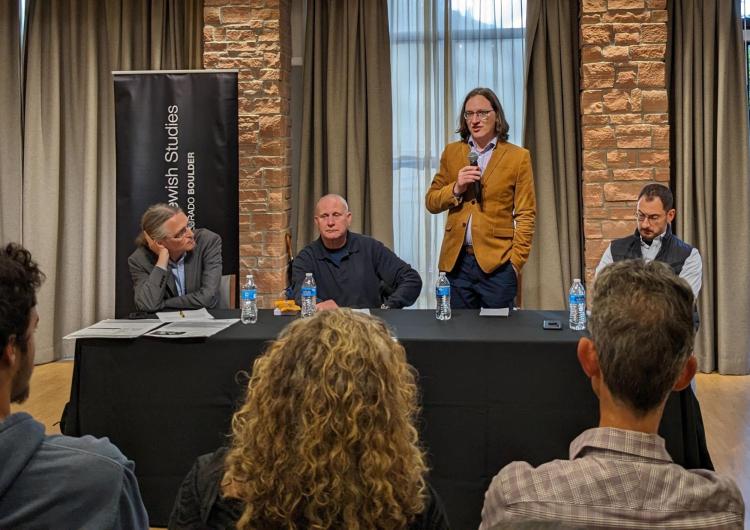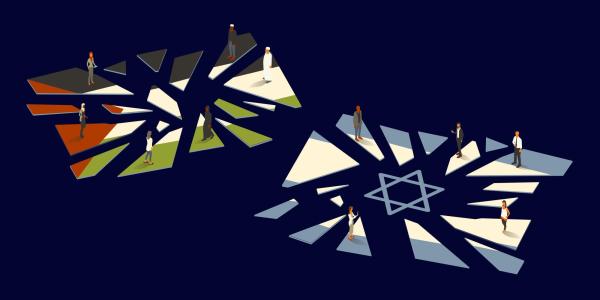At a panel discussion Wednesday, CU Boulder experts on the modern Middle East noted that the current war differs from previous conflicts
Though conflict between Israel and the militant group Hamas has simmered and flared for decades, the war initiated Saturday by Hamas’s terrorist attack on Israel is different, experts on the region said Wednesday.
At a panel discussion convened in response to the war in Israel and the Gaza Strip, Zach Levey, the Israel Institute Visiting Professor at the University of Colorado Boulder, said that while tension between Israel, a sovereign state, and Hamas, a terrorist organization, has a lengthy history, everything from the past few days has been very different from previous clashes.
Saturday’s terrorist attack by Hamas on Israeli territory yielded hundreds of Israeli deaths, as well as dozens taken hostage. In response, Israeli Prime Minister Benjamin Netanyahu vowed retaliation, officially declaring war on Hamas and conducting airstrikes back across the Gaza Strip.
Levey said that the attack can be regarded as “a great failure and a security fiasco for Israel” and that accountability for the lapse likely will be demanded. He also noted that a ground invasion of the Gaza Strip would be extremely costly, and that the Israeli government’s current strategy of inducing a humanitarian crisis via airstrikes to topple Hamas is nothing short of a “tragedy.”

University of Colorado Boulder faculty (left to right) Thomas Pegelow Kaplan, Zach Levey, John Willis and Karim Mattar participated in a panel discussion about the ongoing Israel-Hamas war Wednesday evening.
Panelist Karim Mattar, a CU Boulder associate professor of English, called the war an “ongoing catastrophe.” He called Hamas' atrocities a “stain on Palestine and the Palestinian people,” as well as a “stain on the name of Islam.” He said that if peace is to come, both sides must analyze their history, collectively come to terms about antisemitism and find a mutually beneficial agreement.
Of particular concern, Mattar noted, are some of the U.S. government’s actions, including essentially giving Israel the green light to do whatever is deemed necessary to protect Israeli citizens. This could lead to the continuation of the cycle of hatred and violence that has plagued the people of Palestine and Israel for the past 75 years, Mattar said.
John Willis, an associate professor of history who specializes in the modern Middle East and a panelist Wednesday, said that the current war may significantly affect Israel’s relationships with the United States as well as other regional states, especially the Gulf States.
When asked whether there might be an opening for negotiations or peace talks between the two sides, Levey responded with a firm “no.” He noted the long history of negotiations between the two sides, which are nonetheless at war. “Negotiation prospects have been shattered,” Levey said, adding that if there any diplomatic overtures were to be made, they would likely come from Egypt regarding freeing the hostages.
Mattar said that attacks along the West Bank likely will only increase in the coming days, with deepening impacts on the Palestinian people.
Levey noted, “If the current Israeli government has its way, there will be no path forward,” and he sees “no solution to this issue, not in the short term, not in the medium term and possibly the long term, too.”
However, the panelists emphasized the importance of discussing such highly contentious issues in a respectful and informative manner, with the hope that further education and greater understanding can pave the way for a peaceful future.
Did you enjoy this article? Subcribe to our newsletter.



